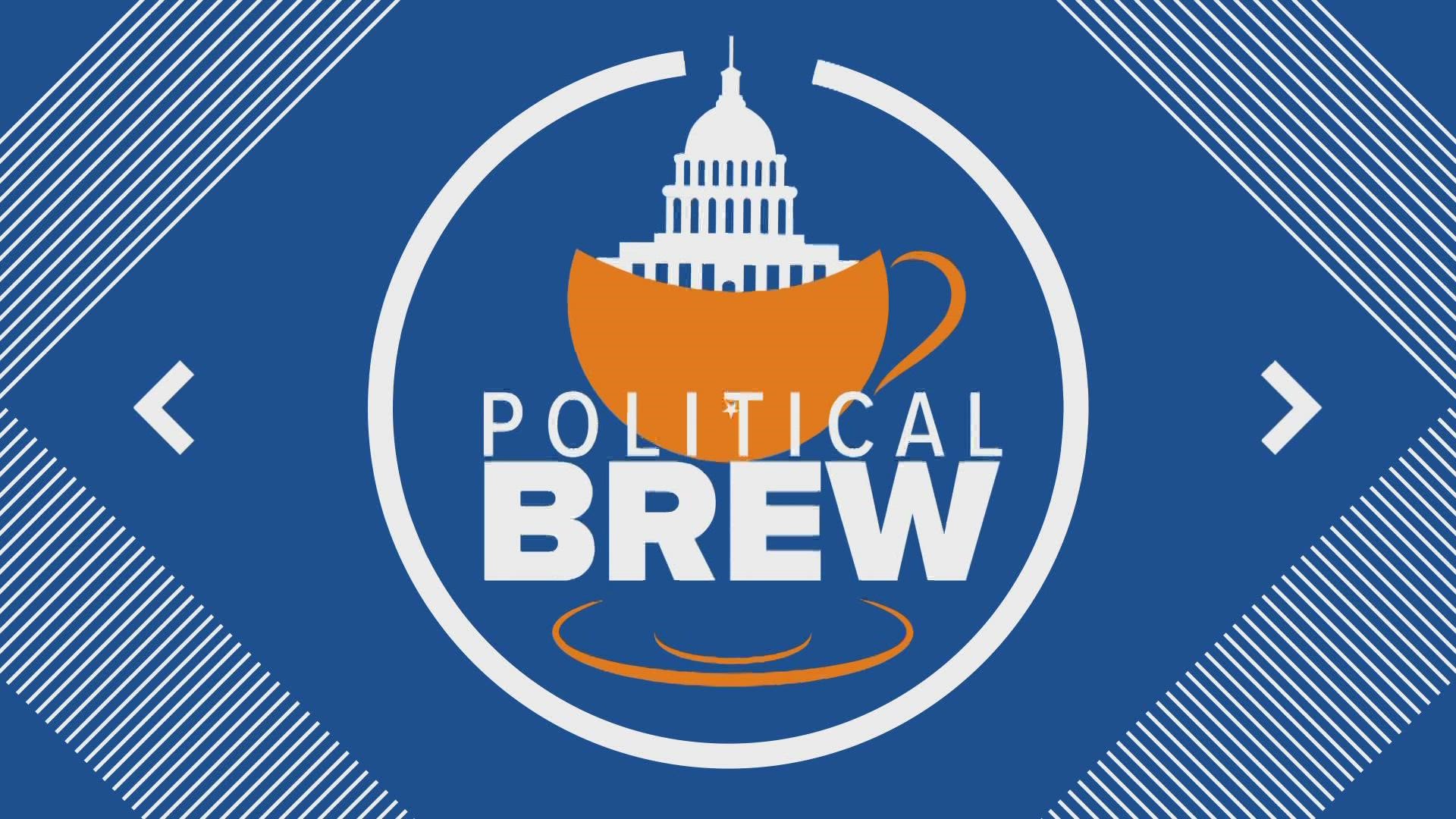MAINE, USA — There's not much evidence that high-profile endorsements change political races in Maine (though some have argued that the TV ad featuring my former NEWS CENTER Maine colleague Bill Green played a significant role in helping Sen. Susan Collins win re-election in 2020).
But a campaign has some value when political celebrities come to town. This past week, Virginia Gov. Glenn Youngkin campaigned in Maine on behalf of Republican candidate for governor Paul LePage.
Democrat Ethan Strimling said endorsements like this are really only "good for fundraising, they're good for the base, it gets them fired up." Republican Phil Harriman agreed with that assessment.
But when Youngklin returned to Virginia the next day, he distanced himself from some of the controversial, racially inflammatory comments LePage made during his eight years as governor, such as calling people of color "the enemy."
The Portland Press Herald reported that Youngkin denounced such comments but also suggested they might be slips of the tongue, not reflective of a man running a "unifying campaign about bringing Mainers together."
"The Paul LePage I know is not a racist, but the comments he makes ad-lib are good fodder for the media," Harriman said.
But Strimling countered that "his comments are racist, and he's had to apologize for some of them and take them back because they were."
He added, "I don't think even LePage would say he's a uniter. He's someone who goes in and fights for what he believes in, and for better or worse, people like that."
Lobster is becoming an issue in the campaigns for governor and Congress. The industry had a bad week, with an environmental group "red-listing" lobster because of the risk the industry poses to endangered right whales. Maine lobstermen lost another round in court as they pushed back on new restrictions meant to protect the whales.
LePage and Republican congressional candidate Bruce Poliquin are making the case that their opponents, Gov. Janet Mills and Rep. Jared Golden, are to blame for the lobster industry's woes because of the policies they've supported.
Harriman thinks the target should not be the elected officials, but at regulators, who he said are essentially unaccountable.
"As Ethan and I know from our time in the Maine Senate, if the regulators run too far ahead of you, you've got to put in legislation to rein them back in. Maybe that's what they need to do," Harriman said.
Strimling doesn't think anyone will be able to pin the industry's problems on Mills or Golden.
Bruce Poliquin lost his seat in Congress four years ago in a ranked-choice voting count. He led in the first round but was edged out by Jared Golden when second-choice votes were applied.
Poliquin faces another election in which ranked choice is a factor because there is an independent candidate, Tiffany Bond, in the CD-2 rematch.
Harriman said, "Bruce should use this as an opportunity to say, 'if I'm not your first choice, I should be your second choice, and here's why.'"
But Strimling thinks Poliquin has to play for all the marbles because people whose first choice is Bond are unlikely to rank Poliquin second.
"So I think Poliquin's entire play, he needs to get over 50 percent on the first ballot and/or hope that Bond voters don't vote for anybody the second time through," Harriman said.
Our analysts also discussed Sen. Susan Collins' efforts to pass a bipartisan bill to protect same-sex and interracial marriage, the likely impact of abortion rights on the fall elections, and the appointment of a "special master" to examine confidential documents seized from the Florida home of former President Donald Trump.
Political Brew airs Sundays on NEWS CENTER Maine's The Weekend Morning Report.

